Grotte de Tourtoirac
TOURTOIRAC
The entrance toa cave is essentially horizontal. Caves are often present or former resurgences (water outlets) that drain infiltrated water from higher networks.
A chasm, on the other hand, begins with a vertical section that requires the use of equipment. It opens up mainly on plateaus. It may be a doline (a hollow that widens and deepens through chemical and mechanical erosion) that has eventually joined an underground network already in place. But it is often a collapse of the 'ceiling' of a river or underground cavity.
One thing is certain, and it's the same for all chasms and caves: we strongly advise you to bring a little wool with you before visiting them. (13° to 15° all year round).
5 results
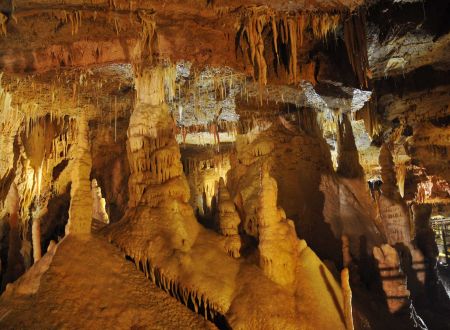
TOURTOIRAC
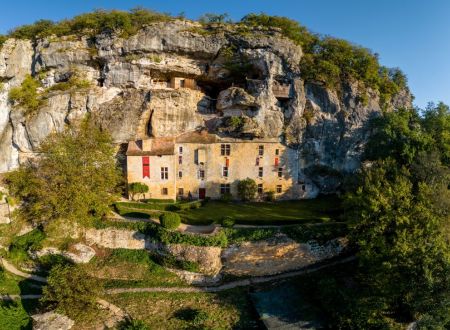
TURSAC
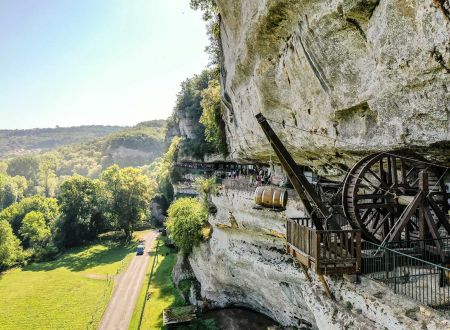
PEYZAC-LE-MOUSTIER
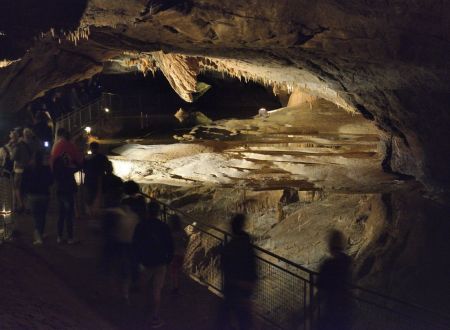
LACAVE
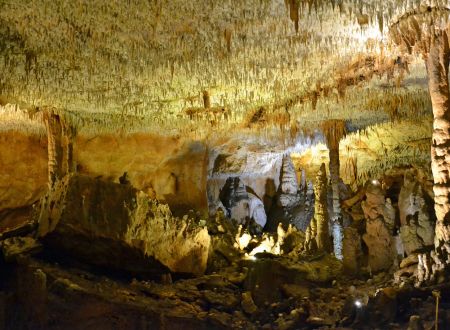
Can you see the difference? Come on, let's complicate things a bit. Did you know that in some regions the terminology is different? A chasm is called an "aven" in the Causses, a "scialet" or a "pot" in the Vercors. The inhabitants of Devoluy, on the other hand, speak of "chourum".
To shine with your family or friends, and to plunge your interlocutors into the abysses of the well of your knowledge, speak to them of "karstic reliefs". Situated on the borders of the Quercy, Périgord and Limousin regions, our destination is built on limestone plateaux whose cavities, created by physical and chemical erosion, are called "karst".
These natural structures are often enhanced by magnificent concretions linked to a very long chemical phenomenon: the crystallisation of carbonates dissolved in run-off water.
Between falling stalacTites and rising stalagMites, between vertiginous draperies and columns of calcite iridescent with precipitates of mineral salts, the wonder is there for all to see... but be careful, you can only touch them with your eyes, as these natural sculptures are so fragile and need to be preserved.
But it's been a while since humans got into the habit of visiting these places full of mystery and hidden beauty. Our ancestors even spray-painted them... bequeathing us grandiose and mind-boggling works that teach us about our origins. We can look back on 20,000 years of human presence in our valleys...
But perhaps the simplest thing to do in the end is to go and visit them directly?
You will also like...
Share this article
Or share the link